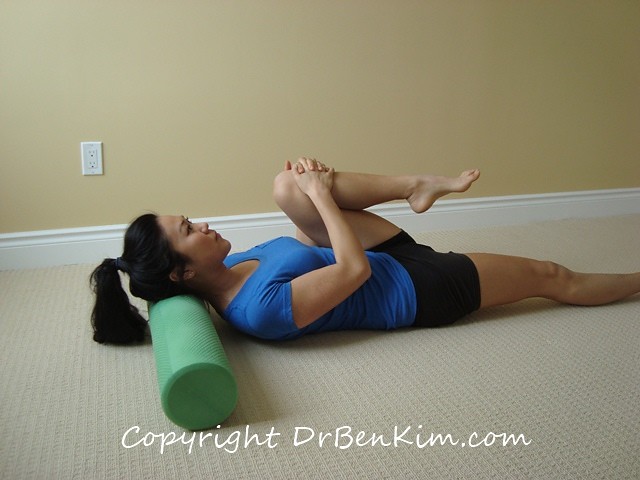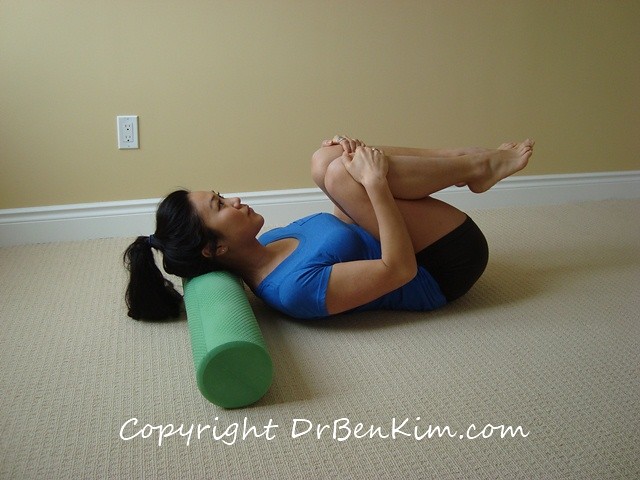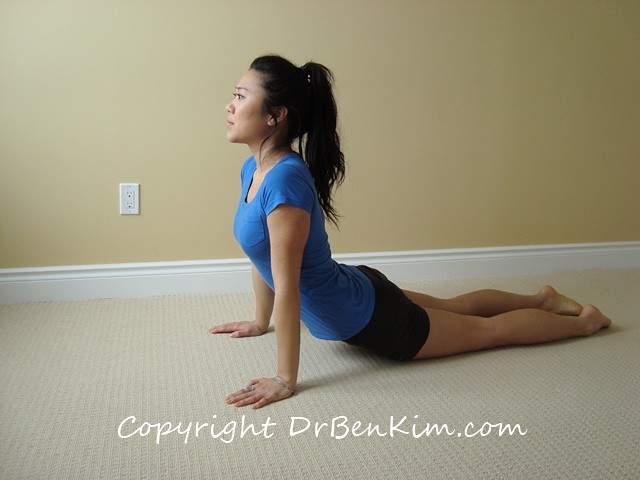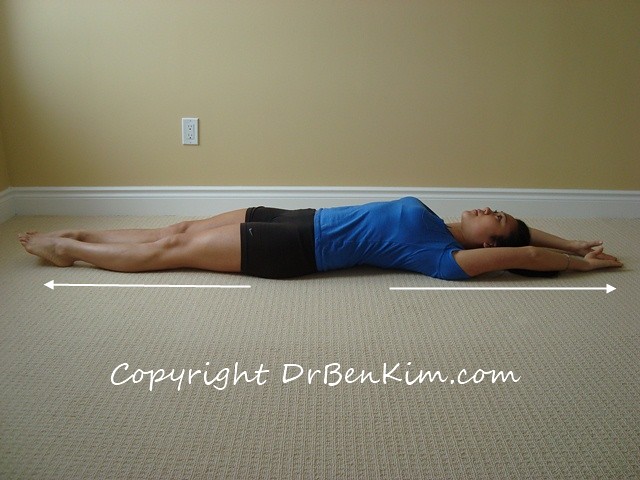You are here
Stretches to Keep Your Spine Healthy
 To review, ligaments and muscles go from one bone to another. The main difference is that ligaments stabilize joints, while muscles allow you to move them.
To review, ligaments and muscles go from one bone to another. The main difference is that ligaments stabilize joints, while muscles allow you to move them.
Your spine is made up of 24 bones that together, form your vertebral column, the protective housing for your nervous system.
Between each of your vertebrae are ligaments and muscles, ligaments to keep your spine stable, and muscles that allow you to bend and rotate your trunk as needed.
By nature, your muscles receive more ongoing blood supply than your ligaments. But both your muscles and ligaments can benefit from ongoing stretching, which ensures regular delivery of oxygen and nutrients, and regular removal of carbon dioxide and other waste products.
When your ligaments and muscles are not well perfused with healthy blood, they're at greater risk of being sprained and strained.
Four Simple Stretches to Keep Your Spine and Surrounding Ligaments and Muscles Healthy
To stretch the backside of your spine, particularly the lower region, begin by lying on your back with your neck comfortably supported, then use your hands to bring one knee up by your chest and hold it there for a good 20 to 30 seconds.
Repeat with your other leg, then do the same thing but with both legs up by your chest at the same time. If you can't get your knees to come right up against your chest, just bring them up as far as you comfortably can. Hold for a good 20 to 30 seconds, release and rest for a few seconds, then repeat a few more times.
To stretch the tissues that line the front of your spine, particularly the lower part of your spine, begin by lying on your stomach, then use your hands to slowly push your upper body up off the ground. Push your upper body as far up off the ground as is comfortable, but keep your lower extremities on the ground
Be sure to maintain comfortable breathing, and hold for a good 20 to 30 seconds. Rest for a few seconds, then repeat another few times.
To provide a "long axis," traction-like stretch to your entire spine and its surrounding ligaments and muscles, begin by lying on your back with your arms up above your head, resting on the ground.
While in this position, simultaneously push your arms up and away from your core while "pointing" your legs down and away from your core. The idea is to make your trunk slightly longer by stretching your arms and legs away from your middle at the same time. Hold this position for as long as is comfortable, rest for a few seconds, then repeat for a few sets.
As with all stretches, it's best to save these spinal stretches for later on in the day, and optimally, after a good workout that has your heart pumping generous amounts of blood through all of your tissues. Generally, blood flow is at its worst first thing in the morning, so stretching major muscles and ligaments upon awakening comes with increased risk of experiencing strains and sprains.
For more stretches to keep your body healthy, feel free to view any of the related articles listed below.
If you don't have a foam roller and are looking to invest in one that offers a blend of comfort, durability, and ideal density to provide therapeutic rolling of your muscles and ligaments, please feel free to have a look at the one that I had custom made for our clients here:
For a DVD that presents still photos and video clips that illustrate how to take your body through all of the major stretches and foam rolling exercises you can do to keep your body as healthy as your genetics will allow, have a look here:
Stretching and Foam Rolling DVD, by Sharon Lee and Dr. Ben Kim
Join more than 80,000 readers worldwide who receive Dr. Ben Kim's free newsletter
Receive simple suggestions to measurably improve your health and mobility, plus alerts on specials and giveaways at our catalogue
Please Rate This
Highest Rated | Related Posts | ||















Comments
Thanks!
Thanks for the information on stretching, Ben. The illustrations make them easy to remember.